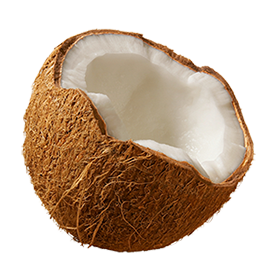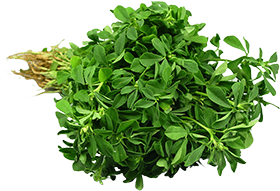 Most of us desire a thick head of shiny, healthy hair. Unfortunately, excessive hair loss is a problem that many people suffer from. The average human head as 100,000 strands of hair. It’s normal to lose 50 to 100 strands per day, and once you start losing more than that, it may be time for you to take some action to stop your hair loss in its tracks.
Most of us desire a thick head of shiny, healthy hair. Unfortunately, excessive hair loss is a problem that many people suffer from. The average human head as 100,000 strands of hair. It’s normal to lose 50 to 100 strands per day, and once you start losing more than that, it may be time for you to take some action to stop your hair loss in its tracks.
What causes hair loss? There are several factors that can contribute:
- Aging
- Stress
- Hormone imbalance
- Smoking
- Nutritional deficiencies
- Genetics
- Autoimmune disorders
- Scalp infections
- Harsh chemical treatments or products
- Medications or medical disorders
Nobody wants to end up with baldness, thinning hair, or bald spots. Fortunately, there are a number of at-home natural treatments you can try with ingredients you might already have on hand. Let’s take a look at some of the top natural remedies for hair loss.
Onion Juice
I t may sound strange, and a little stinky, that onion juice would be a solution for hair loss. In a small study conducted by The Journal for Dermatology, 20 out of the 23 people who applied onion juice to their scalps twice a day saw hair regrowth within six weeks.
t may sound strange, and a little stinky, that onion juice would be a solution for hair loss. In a small study conducted by The Journal for Dermatology, 20 out of the 23 people who applied onion juice to their scalps twice a day saw hair regrowth within six weeks.
How does it work? Onion juice has a high sulfur content, which increases circulation to the hair follicles and stimulates the regeneration of hair follicles as well as increases collagen. The flavonoids in onion juice are believed to reduce inflammation.
Scalp infections can lead to hair loss, and the antibacterial properties of onion juice can kill germs that lead to infections.
To use onion juice on your scalp:
- Grate the onion and strain it, or buy a jar of onion juice.
- Apply the juice directly on your scalp and leave it on for 30 minutes, and then shampoo it off.
- Repeat two to three times per week.
Supplements
 Your diet and nutritional deficiencies can play a role in hair loss. There are a few nutrients that can be helpful for treating those issues and helping your hair.
Your diet and nutritional deficiencies can play a role in hair loss. There are a few nutrients that can be helpful for treating those issues and helping your hair.
Iron: If you’ve tested positive for iron-deficiency anemia, you may be experiencing hair loss because of it. Iron supplements can help, but you should only take them if you are truly anemic.
Zinc and biotin: People with metabolic disorders lacking these two nutrients often have thin or brittle hair and nails. Taking these supplements can help with hair growth.
Consult with your doctor before you start taking any supplements for your hair, especially if you are on other medications. While they typically don’t require prescriptions, it’s still important to keep your doctor informed.
Aloe Vera
 If you want something time-tested, give aloe vera a try. It has been used to promote hair growth for centuries. The enzymes in aloe vera improve healthy hair growth, and its alkalizing properties balance your hair’s pH level, which also promotes strong and lustrous hair growth.
If you want something time-tested, give aloe vera a try. It has been used to promote hair growth for centuries. The enzymes in aloe vera improve healthy hair growth, and its alkalizing properties balance your hair’s pH level, which also promotes strong and lustrous hair growth.
Aloe vera is also excellent for your scalp’s health. It can reduce itching, inflammation, dandruff, and redness.
Three to four times a week apply aloe vera gel or juice to your scalp and hang out for a couple of hours. Rinse it off with lukewarm water and enjoy the results.
Hot Peppers
 The reason peppers are hot is because of a compound called capsaicin. A study published in Growth Hormone & IGF Research showed that people who took a 6mg supplement daily saw a stimulated growth factor associated with hair growth in about five months.
The reason peppers are hot is because of a compound called capsaicin. A study published in Growth Hormone & IGF Research showed that people who took a 6mg supplement daily saw a stimulated growth factor associated with hair growth in about five months.
You can either talk to your doctor about introducing a capsaicin supplement to your diet, or add a little spice to your life and use more hot peppers in your recipes and meals.
Coconut
 Coconut has several benefits for your hair. Not only does it promote hair growth, but it also conditions your hair. It is full of essential fats, minerals, and proteins which reduce hair breakage. It is also a good source of potassium and iron.
Coconut has several benefits for your hair. Not only does it promote hair growth, but it also conditions your hair. It is full of essential fats, minerals, and proteins which reduce hair breakage. It is also a good source of potassium and iron.
Use either coconut oil or milk to get quick results and prevent hair fall. Here’s an easy way to reap the benefits of coconut:
- Warm some coconut oil and massage it into your hair from root to tip
- Leave in for one hour then wash it out.
- Alternatively, grate a coconut and squeeze out its milk and mix with some water.
- Apply it to any areas you notice thinning or balding.
- Leave it on your scalp overnight and wash it in the morning.
Hibiscus
 The hibiscus flower is not just beautiful to look at. It has great benefits for your hair. It nourishes, prevents premature graying, treats dandruff, prevents split ends, and controls hair fall.
The hibiscus flower is not just beautiful to look at. It has great benefits for your hair. It nourishes, prevents premature graying, treats dandruff, prevents split ends, and controls hair fall.
Here’s how to harvest the power of the hibiscus flower:
- Crush a few flowers and mix with coconut oil to form a paste.
- Apply the paste to your scalp and hair and leave it on for a few hours.
- Rinse off with cold water and a mild shampoo.
- Repeat three to four times a week.
Garlic
 Garlic is often used in traditional hair regrowth medicines thanks to its high sulfur content. You’ll get increased circulation to your scalp, which stimulates hair growth and keeps hair loss at bay. It can also help banish dandruff and flakiness and fight scalp infections.
Garlic is often used in traditional hair regrowth medicines thanks to its high sulfur content. You’ll get increased circulation to your scalp, which stimulates hair growth and keeps hair loss at bay. It can also help banish dandruff and flakiness and fight scalp infections.
To use garlic to fight hair loss:
- Crush a few cloves of garlic and add coconut oil.
- Boil the mixture for a few minutes and let it cool.
- Massage the mixture onto your scalp and let it sit for 30 minutes.
- Repeat this process two times per week.
Hair Oil Massage
 Many of these treatments require you to massage your scalp already, and it is for good reason. A properly executed hair and scalp massage increases blood flow to the hair follicles which stimulates growth. It also conditions the scalp and improves the strength of your hair’s roots.
Many of these treatments require you to massage your scalp already, and it is for good reason. A properly executed hair and scalp massage increases blood flow to the hair follicles which stimulates growth. It also conditions the scalp and improves the strength of your hair’s roots.
If you struggle with stress and anxiety, that can be a factor in increased hair loss. A nice scalp massage, while performing the other benefits listed, can also help reduce stress and anxiety and promote relaxation.
Some excellent oils to use for a one-a-week scalp massage are coconut, almond, olive, castor, and argan oil.
Indian Gooseberry
 Indian gooseberry, also known as amla, is a blessing for people suffering from hair loss. It’s full of antioxidants and vitamin C that can stop and reverse hair loss in its beginning stages.
Indian gooseberry, also known as amla, is a blessing for people suffering from hair loss. It’s full of antioxidants and vitamin C that can stop and reverse hair loss in its beginning stages.
The anti-inflammatory, antioxidant, antibacterial, and exfoliating properties of Indian gooseberry keep your scalp healthy, and a healthy scalp equals improved hair growth.
To take advantage of this miracle fruit:
- Mix equal parts of either amla pulp, juice, or powder with lemon juice.
- Apply the mixture to your scalp and let it dry. You can even wear a shower cap and sleep with the mixture overnight.
- Rinse your hair with lukewarm water and wash with a mild shampoo.
Eggs
 Eggs contain several ingredients that can both prevent and stop hair loss. It’s rich in sulfur, phosphorus, selenium, iodine, zinc, and protein, which all promote hair growth.
Eggs contain several ingredients that can both prevent and stop hair loss. It’s rich in sulfur, phosphorus, selenium, iodine, zinc, and protein, which all promote hair growth.
Here’s how to use the powers of eggs without making a scrambled mess:
- Separate the egg white and yolk and add a teaspoon of olive oil to the egg white.
- Beat the mixture until it has a paste-like consistency.
- Apply it to your entire scalp and hair
- Leave the mixture on for 15 to 20 minutes
- Rinse off with cool water and a mild shampoo.
Fenugreek
 Fenugreek is also known as methi, and it is excellent for treating hair loss. The seeds contain hormone antecedents that not only improve hair growth but help rebuild hair follicles for stronger growth. Benefits also come from proteins and nicotinic acid that enhance hair growth.
Fenugreek is also known as methi, and it is excellent for treating hair loss. The seeds contain hormone antecedents that not only improve hair growth but help rebuild hair follicles for stronger growth. Benefits also come from proteins and nicotinic acid that enhance hair growth.
Follow these steps to unleash the power of fenugreek on your hair:
- Soak one cup of fenugreek seeds in water overnight.
- After they’ve soaked, grind the seeds to make a paste.
- Apply the paste to your scalp and hair and cover with a shower cap.
- Leave in for 40 minutes then rinse with lukewarm water.
- Repeat every morning for a month for maximum results.
Licorice Root
 The softening properties of licorice root opens the pores, soothes the scalp, and helps relieve irritations. Licorice root is not only great for preventing hair loss and treating baldness, but it’s also an effective dandruff treatment.
The softening properties of licorice root opens the pores, soothes the scalp, and helps relieve irritations. Licorice root is not only great for preventing hair loss and treating baldness, but it’s also an effective dandruff treatment.
If you’re a tea drinker, you can enjoy the benefits by drinking licorice tea up to three times per day.
This is how you can use licorice root to treat bald spots:
- Mix one tablespoon of ground licorice root with one cup of milk and a quarter teaspoon of saffron.
- Before bed, apply the mixture to bald patches and leave it on overnight.
- Wash your hair in the morning.
- Repeat once or twice per week.
Beetroot
 Beetroot contains just about every vitamin and mineral that is essential for healthy hair growth. It has carbohydrates, potassium, proteins, phosphorus, calcium, and vitamins B and C. Adding fresh beetroot juice to your diet is an excellent way to get the benefits of this vegetable.
Beetroot contains just about every vitamin and mineral that is essential for healthy hair growth. It has carbohydrates, potassium, proteins, phosphorus, calcium, and vitamins B and C. Adding fresh beetroot juice to your diet is an excellent way to get the benefits of this vegetable.
To topically use beetroot for hair growth:
- Boil a few beetroot leaves in water.
- Grind them up and mix them with henna.
- Apply the paste to your scalp and leave it on for 15 to 20 minutes.
- Rinse it out and repeat several times a week.
Flaxseeds
 Omega-3 fatty acids are abundantly found in flaxseeds. They have the ability to promote hair growth and prevent any further hair loss. Flaxseeds deliver their omega-3 benefits when ingested. Stir a tablespoon of freshly ground flaxseeds into a glass of water every morning, or sprinkle them on top of your salad or soup, or blend them up in a smoothie.
Omega-3 fatty acids are abundantly found in flaxseeds. They have the ability to promote hair growth and prevent any further hair loss. Flaxseeds deliver their omega-3 benefits when ingested. Stir a tablespoon of freshly ground flaxseeds into a glass of water every morning, or sprinkle them on top of your salad or soup, or blend them up in a smoothie.
If you’d rather use flaxseed topically, you can apply flaxseed oil directly to your hair and scalp.
Change Your Diet
 What you eat can make a big difference in reducing your hair loss. Here are some vitamins and minerals to add to your diet and the foods that contain them:
What you eat can make a big difference in reducing your hair loss. Here are some vitamins and minerals to add to your diet and the foods that contain them:
Vitamin A: This vitamin promotes the growth of healthy cells and tissues throughout your body, including your hair and scalp. Red, yellow, and orange fruits are typically high in vitamin A, as well as dark leafy green vegetables. Liver, fish oil, and eggs are excellent animal sources of vitamin A.
B Vitamins: This group includes vitamin B6, B12, and folic acid. Healthy hair needs a consistent supply of blood and oxygen, and B vitamins are vital for getting oxygenated blood to your hair. A deficiency can even cut off the blood supply to your hair, resulting in increased hair loss and slow regrowth. To get vitamins B6 and B12, eat protein-rich foods like chicken, eggs, milk, pork, fish, and soybeans. Folic acid is found in leafy vegetables, orange juice, avocados, and broccoli.
Vitamin C: The connective tissue collagen is produced by vitamin C. Collagen holds the tissues in your body together, including in your hair. Since your body can’t store vitamin C for long periods of time, you’ll have to make sure you eat it every day. The best sources of vitamin C include oranges, tomatoes, berries, peppers, and melons.
Water: Proper hydration is the key to every cell in your body working correctly. Drink plenty of water if you’re trying to promote healthy hair growth.

